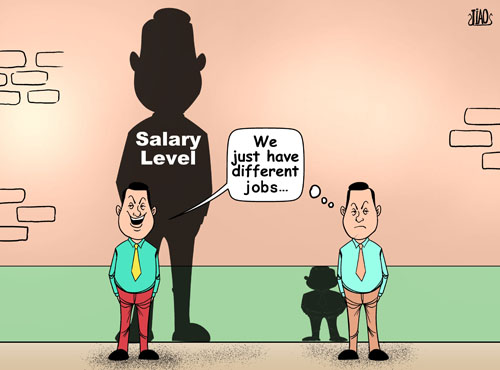Sharing matters for China's SOEs
 |
|
Minor difference [By Jiao Haiyang/China.org.cn] |
China's state-owned enterprises (SOEs) have long been a hot topic of debate at the National People's Congress (NPC) and Chinese People's Political Consultative Conference (CPPCC). Debate usually centers on the high salaries and special welfare benefits the SOEs offer their top management and staff, along with their rapid growth at home and overseas.
According to data from the State-owned Assets Supervision and Administration Commission (SASAC), China's SOE watchdog, the net profits of China's centrally-administrated SOEs rose 40.2 percent year on year to 848.98 billion yuan (US$128.95 billion) in 2010, and revenue rose 32.1 percent to 16.7 trillion yuan.
In 2009, their combined assets of 21 trillion yuan were equivalent to 61.7 percent of the country's annual GDP. In the same year, they paid 1.15 trillion yuan in taxes; accounting for more than 17 percent of total intake of central coffers. But that is a small percentage when compared to their wealth.
In China, "special enterprises" enjoy monopolistic status in sectors such as oil and gas, minerals, power generation, banking and insurance, telecommunications and transportation. Many of them are listed on stock markets, but the central government holds at least half of their shares. In fact, the huge profits of the SOEs are not won through competition, but are closely related to their monopoly positions in certain key sectors that private companies do not have access to. They can also use land free-of-charge and obtain low interest loans.
SOEs have long been under fire from the public and the media for exploiting their monopoly positions and enjoying high incomes, while exuding privilege and self-esteem. The only section of the public to benefit significantly from the SOEs' success are those who work for them.
 0
0 






